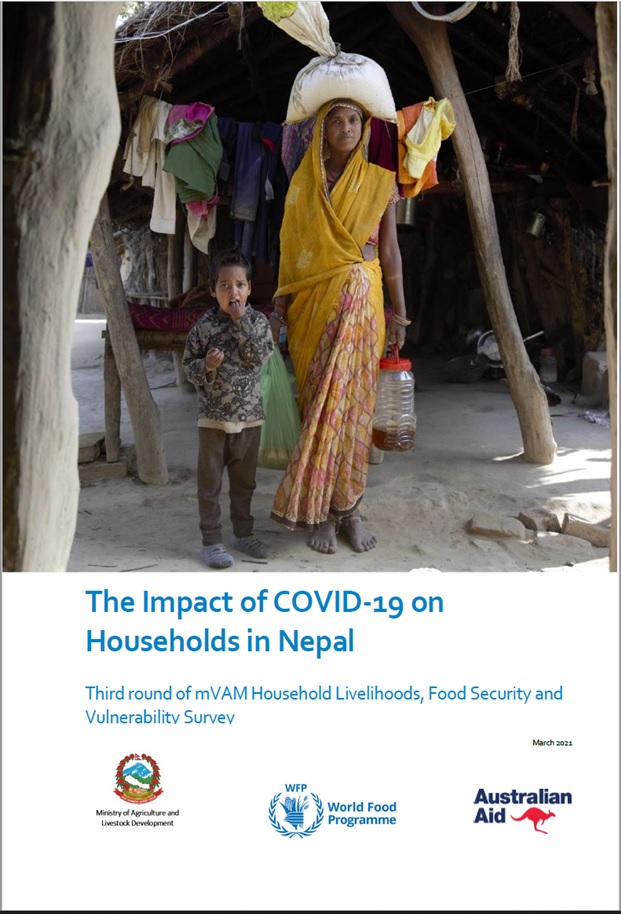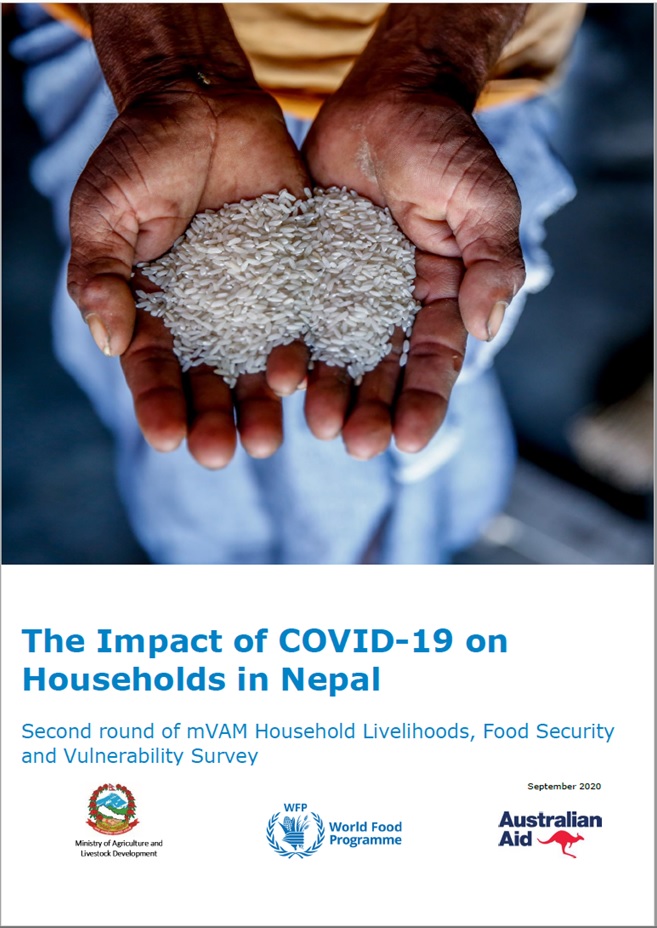Food Security Bulletin No.12
This monitoring cycle is the traditional lean season in agricultural Nepal, with participants to the WFP/VAM survey reporting limited food stocks (ranging from 2 weeks to 2 months) and an increase in their engagement in alternative livelihood sources. As before, a range of livelihood strategies have been reported, including wage labour, the sale of fuel wood, bamboo crafts and milk, the collection of forest products, and road construction. Local yield predictions for the winter harvest of wheat and barley are not promising, particularly in areas lacking irrigation facilities. In these areas, inadequate rain and snowfall during the planting and growth stages have resulted in the poor performance of the crop thus far. Based on this cycle’s plant conditions, survey participants reported an anticipated decrease in production as large as 50%. Rains received after the end of this monitoring cycle, in early to mid-March, may have a positive effect on wheat and barley production, but the actual effect of these late rains cannot yet be determined.
News & Events
- Brief on the Food Security Situation in Nepal (Mid-July to mid-November 2017)
- Launch of Food Security Information System for Nepal
- Second Advance Estimate of 2016/17 Wheat Production in Nepal using CRAFT
- Brief on the food security situation in Nepal (Mid November 2016 to Mid March 2017)
- Updated NeKSAP guidance on food security response analysis and district food security monitoring

